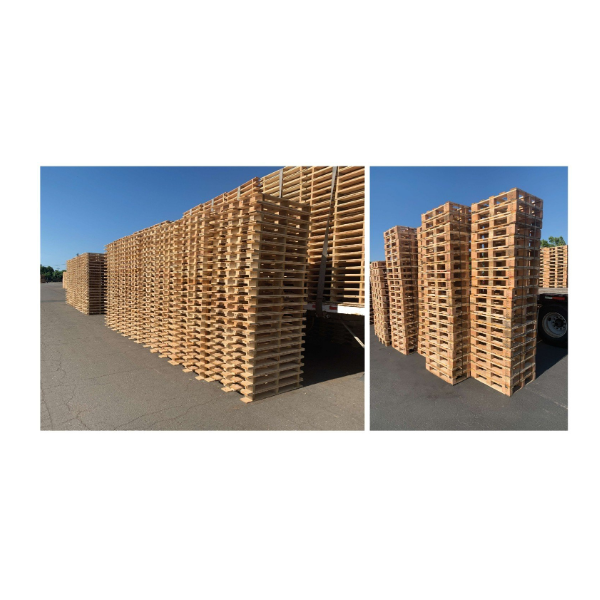Wooden pallets are a staple of the global supply chain, serving as the foundation for transporting goods across industries. Durable, versatile, and cost-effective, wooden pallets play a critical role in warehousing, distribution, and international shipping. Despite the rise of alternative materials like plastic and metal, wood remains the most commonly used pallet material due to its unique blend of performance and affordability.
What Are Wooden Pallets?
Wooden pallets are flat transport structures made primarily from hardwood or softwood. They are designed to support goods in a stable manner while being lifted by forklifts, pallet jacks, or conveyors. Their standard design allows for easy stacking, storage, and movement of goods in bulk, making them essential in virtually every logistics operation.
Key Benefits of Wooden Pallets
1. Cost-Effective
Wooden pallets are generally less expensive to produce than plastic or metal options. Their lower cost makes them ideal for single-use or one-way shipping while still offering strong performance.
2. High Strength and Load Capacity
Wooden pallets can handle heavy loads and rough handling, making them ideal for transporting construction materials, machinery, and bulk goods. They are robust enough to support large weight capacities without bending or warping.
3. Easy to Repair and Reuse
Unlike plastic pallets that often require full replacement when damaged, wooden pallets can be repaired easily by replacing individual boards. This extends their usable life and helps businesses reduce costs over time.
4. Recyclable and Sustainable
Wood is a renewable resource, and many wooden pallets are made from recycled or scrap lumber. At the end of their life cycle, they can be broken down into mulch, animal bedding, or even reused for furniture and construction projects.
5. Readily Available and Customizable
Wooden pallets are widely available in standard sizes, but they can also be custom-built to meet specific transportation needs. This flexibility makes them suitable for products of all shapes and sizes.
6. ISPM 15 Compliance for Export
When heat-treated, wooden pallets comply with ISPM 15 regulations, which are required for international shipping. This treatment ensures that pests and pathogens are eliminated, allowing the pallets to be safely used across borders.
Common Applications
-
Retail and Grocery: Shipping food, beverages, and packaged goods.
-
Manufacturing: Moving raw materials, components, and finished products.
-
Agriculture: Transporting produce, plants, and livestock supplies.
-
Construction: Hauling heavy building materials and tools.
-
E-commerce: Supporting high-volume shipments in warehouses and fulfillment centers.
Final Thoughts
Wooden pallets remain the backbone of modern logistics due to their strength, affordability, and environmental advantages. Whether used in domestic distribution or global export, they offer a practical and reliable solution for businesses of all sizes. With options for repair, reuse, and recycling, wooden pallets not only save money but also support more sustainable supply chain practices.




